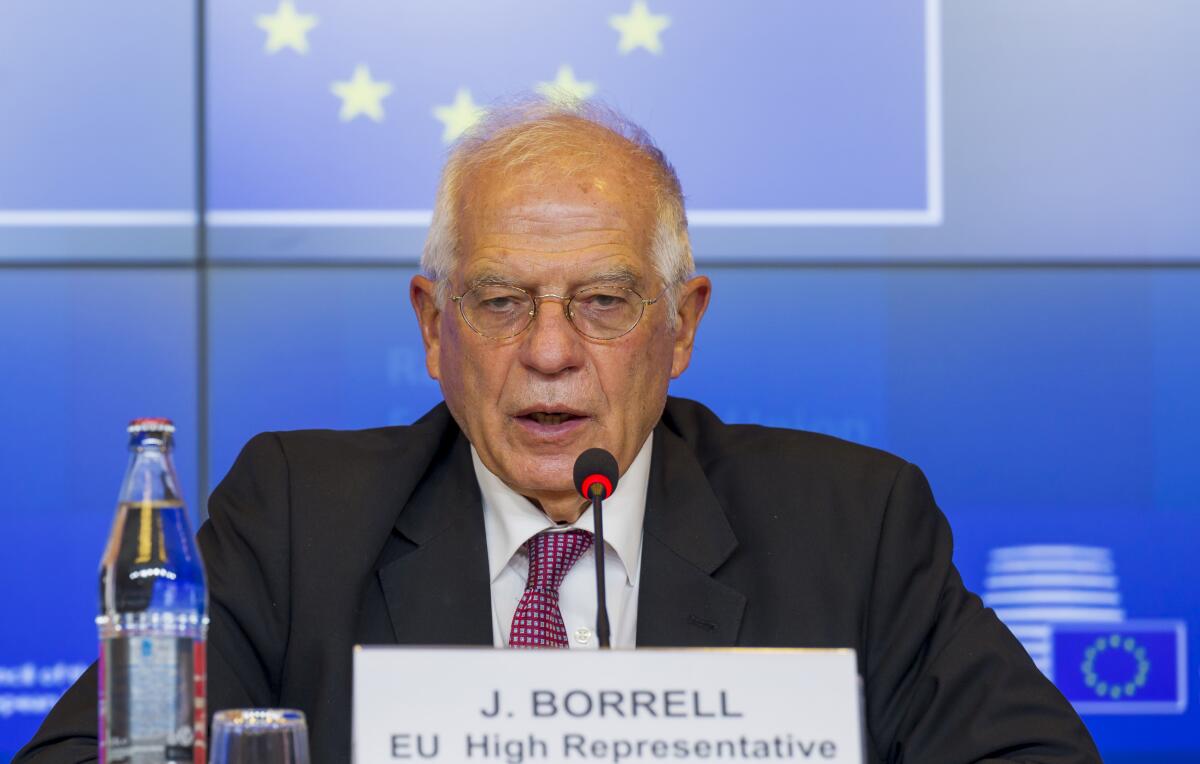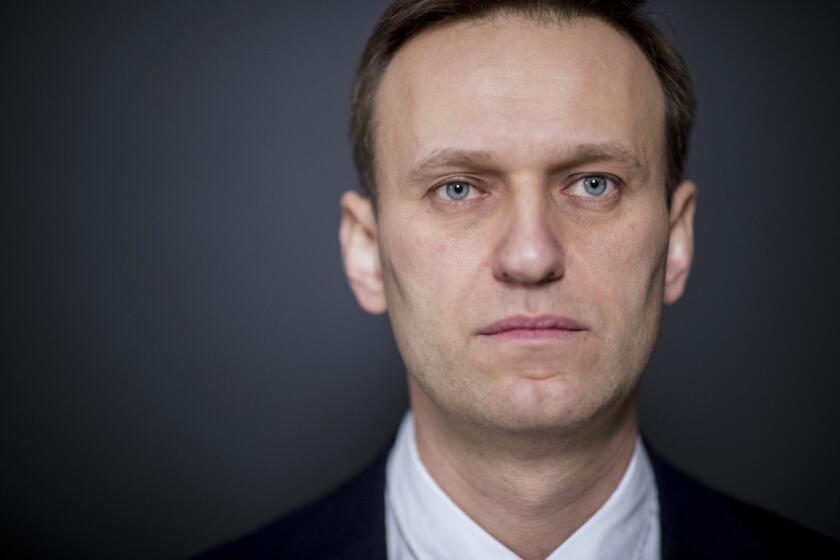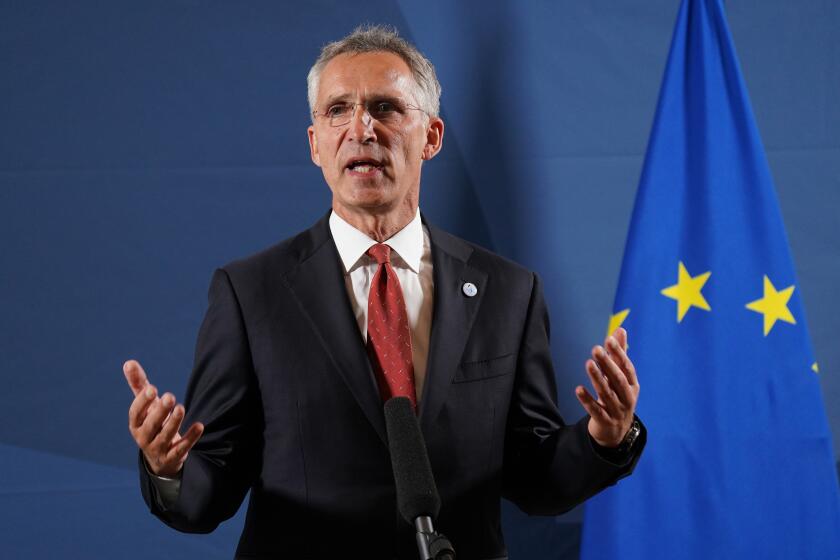EU slaps sanctions on six Russians over Alexei Navalny poisoning

- Share via
BRUSSELS — The European Union and Britain imposed sanctions Thursday on six Russians, including some of the nation’s highest-ranked officials, and on one organization over the poisoning of opposition politician Alexei Navalny with a Soviet-era nerve agent.
Foreign Minister Heiko Maas of Germany, which holds the EU’s rotating presidency, said that “only with a clear position and by sticking to principles can we as the European Union make progress with respect to Russia.”
The sanctions consist of a travel ban to the EU and an asset freeze for the targeted individuals and organization, the EU said.
The list includes Alexander Bortnikov, the chief of Russia’s Federal Security Service, the KGB successor agency in charge of domestic security, and Sergei Kiriyenko, President Vladimir Putin’s deputy chief of staff. The EU is also targeting the State Scientific Research Institute for Organic Chemistry and Technology.
Britain, which formally left the European Union earlier this year, said it would also apply the EU sanctions.
“Any use of chemical weapons by the Russian state violates international law. We are determined to hold those responsible to account,” British Foreign Secretary Dominic Raab said.
The attack on Alexei Navalny — at least the sixth such attempt against a Russian dissident in the last five years — has provoked international condemnation on a scale not seen since the poisoning of former double agent Sergei Skripal.
Russian officials have repeatedly denied any involvement in the poisoning, and the Russian doctors who first examined Navalny insist that there were no signs of poisoning.
Kremlin spokesman Dmitry Peskov called the EU’s move “a deliberate unfriendly step” and said the bloc had “inflicted damage” on its relations with Russia.
“Moscow will analyze the situation and will act in accordance with its own interests,” Peskov said.
EU foreign ministers agreed Monday to impose the sanctions, following a push by France and Germany. The legal procedures for implementing the sanctions were completed Thursday.
French Foreign Minister Jean-Yves Le Drian said the EU had acted “with exceptional speed, in keeping with the seriousness of this act and the methods used.”
Navalny, an anti-corruption investigator who is Putin’s most visible political opponent, fell ill Aug. 20 during a domestic flight in Russia. He was flown to Germany for treatment two days later and is still recovering there.
NATO Secretary-General Jens Stoltenberg said Moscow has “serious questions” to answer about the poisoning of opposition politician Alexei Navalny.
Last week, tests conducted at labs designated by the Organization for the Prohibition of Chemical Weapons confirmed that Navalny was poisoned by a Novichok nerve agent. The conclusion accorded with previous findings of other labs in Germany and elsewhere.
Russian Foreign Minister Sergei Lavrov has suggested that Moscow might sever ties with Berlin and other governments over the Navalny dispute, saying Wednesday that “the Germans are not planning to provide any facts, despite all international and legal obligations. We respond in kind. This is diplomatic practice.”
In a phone call Tuesday with Lavrov, EU foreign policy chief Josep Borrell insisted that the EU “wishes to maintain open channels of communication with Russia and to enhance cooperation on issues of mutual interest,” according to a statement from Borrell’s office.
More to Read
Sign up for Essential California
The most important California stories and recommendations in your inbox every morning.
You may occasionally receive promotional content from the Los Angeles Times.














